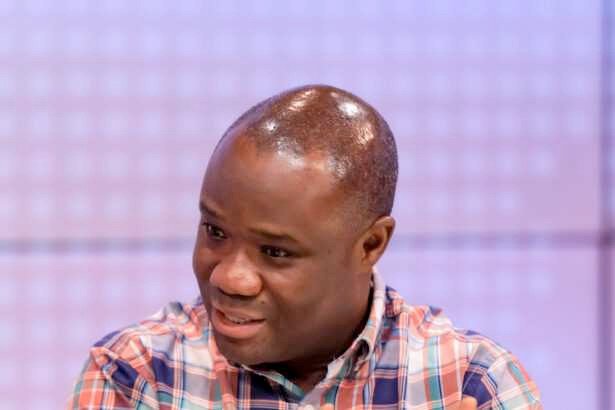Hot!
Of insults, team quality and the Stars

ON Tuesday night, January 18 2022, Ghana’s Black Stars shamefully crumbled 2-3 to minnows Comoros in their final African Cup of Nations (AFCON) Group C game played at the Roumdé Adjia Sports Stadium in Garoua.
The staggering result was enough to bundle the 10-man Stars out of the campaign. Skipper Andre Dede Ayew was given the marching-off orders in the 25th minute when the Stars were already down to an inconceivable fifth minute goal. Comoros doubled their lead after the recess. But the 10-man Ghana team ferociously clawed back to make it 2-2 before conceding a late strike as the players poured forward in search of another goal.
Truth is that our boys were not good enough.
It was Ghana’s darkest moment in the history of AFCON as the hunt for their first Golden Fleece since 1982 continues next year when the continent’s football festival comes around, once again.
Evidently, it was not the first time Ghana had bowed out in round one; but this is the only time the Stars had returned from a Nations Cup tournament without winning a single game.
Ahead of the must-win tie, nonetheless, many Ghanaians took to social media and other media outlets to pour out invectives on the team, the Ayew brothers, the technical handlers and the leadership of the Ghana Football Association (GFA), for superintending over the Stars supposed failure.
At a point, it got so bad that some respected football icons including former GFA boss Lepowura Alhaji MND Jawula had to intervene, appealing to Ghanaians to take the edge off the Black Stars as regards their performance in the tournament – stressing the need to encourage the players at the crucial stage of the competition and “and not to kill their moral.”
“We should open our eyes. Ghanaians should tone down on some of the issues and some of the things that we say that don’t encourage our players because people are sacrificing to play for Ghana.”
Ghana had opened its Group C campaign with a dismal 0-1 loss to Morocco before being held to a disappointing 1-1 draw game by Gabon who struck as late as the 88th minute – after the Stars had taken an 18th-minute lead through an eye-catching Dede Ayew strike. That result put Ghana in a tongue-tied position ahead of the Comoros affair.
For the fans, beating Gabon and Comoros should have been as easy as shooting fish in a barrel. Perhaps, that may not be exactly true as things have changed now and the gap between the so-called minnows and the giants has narrowed appreciably. You may have been aware of what is happening to Algeria in the tournament.
Tipped to defend their title without much sweat, the Algerians were halted in their second group game by a team you would consider as neophytes – Equatorial Guinea. Stunningly, the 29th-FIFA ranked Fennec Foxes slumped 0-1 to the 114th-ranked Equatoguineans, to put them in harm’s way against Cote d’Ivoire.
Of course, nobody is saying the Stars must not be criticised. Far from that! Criticising in order to whip the team into line when they go off-beat is the way to go; but it must be done dutifully and constructively.
But when you get so hot-and-bothered and emotional, and rather decide to extend the attacks on the players to their families; that is most unfortunate and crude. It is the most uncultured way to address an issue – no matter how niggling it is.
Cast your mind back a bit and recall the avalanche of insults that former skipper of the Black Stars, Asamoah Gyan – and the mother (now late) had to be subjected to anytime he had a stumpy performance for Ghana. Is that the way to go? Many have had their hearts in the boots after reading some of the disparaging comments on social media.
Truth, however, is that the Black Stars and Coach Milovan Rajevac hugely let the nation down with the string of lifeless performances in the AFCON. Rajevac, who took Ghana to a memorable quarter final slot at the 2010 FIFA World Cup, has been disastrous in his second stint with delayed substitutions and tactics. Losing to Morocco and ‘little’ Comoros and picking a draw against Gabon, is the worst that can happen to a side that has won the Nations Cup four times – and only in 2010 and 2015 were in the grand finale.
Ahead of the AFCON, the Stars were also crushed 3-0 by Algeria in a friendly.
The only positive bit was when Ghana managed to beat South Africa 1-0 in that controversial tie to qualify for the play-off stage of the Qatar 2022 World Cup.
How do we include injured players like Mubarak Wakaso and Mohammed Kudus into our final squad for the tournament when we had other capable ones elsewhere? This is simply scandalous! Are the players currently in the team the best we could lay hands on?
Well, it is probably time for cool heads now as we navigate the way forward, especially when we have a crucial World Cup play-off ahead of us, in less than two months.
Whatever decision we take today should be able to change things for the better. For now, our football is bleeding and the love for the Stars is increasingly vanishing – if not gone already. It is incumbent on GFA boss Kurt Okraku and his lieutenants to burn the candle at both ends to resurrect the game’s fortunes as quickly as possible.
By John Vigah
Hot!
Africa investment network partners 17 Asset Management to boost diaspora investment

The Africa Investment Network has entered a new partnership with 17 Asset Management to expand investment opportunities for Africans in the diaspora.
The two organisations will work together to open more pathways for diaspora investors, provide better data on markets, and connect investors to viable projects across the continent.
The partnership will focus on mapping investment opportunities across countries and sectors, building a Diaspora Pathways Program to guide new investors, and creating a shared research platform that provides market insights, returns benchmarks, regulatory updates and sector outlooks.
The two groups will also develop a trade and deal catalogue to help match businesses with partners.
As part of the collaboration, both institutions will host investment roadshows through the Global Africa Summit series, starting with GAS Accra from December 11 to 12 at the Alisa Hotel.
The event will showcase deals, hold sector briefings and connect investors with government and private sector actors.
Africa Investment Network founder and Chief Executive Jane Reindorf Osei noted that diaspora capital remains one of Africa’s strongest advantages because it is patient, purpose driven and closely linked to local development outcomes.
She explained that the partnership will help direct more diaspora investment into areas where it can make the most impact.
Chairman of 17 Asset Management, John Morris, highlighted that the joint effort will blend strong investment design with Africa Investment Network’s networks and convening power.
He stressed that improved research and compliant market access will give diaspora investors more confidence across different markets.
The two institutions will open their diaspora investment platform in the second quarter of 2026, followed by the launch of a co investment window.
Investment roadshows will also be held in North America, the Caribbean and key African centres next year.
Africa Investment Network and 17 Asset Management invited governments, development finance institutions, family offices, asset managers and other partners to support deal creation, risk sharing and market building initiatives aimed at boosting diaspora participation.
By: Jacob Aggrey
Hot!
NDC has not filed any petition for removal of EC Chair and her deputies-Felix Kwakye Ofosu

Government Communications Minister Felix Kwakye Ofosu insists that neither President Mahama nor the National Democratic Congress has filed any petition seeking the removal of the Electoral Commission Chairperson and her two deputies.
In a one on one Interview with GHone, he explained that the President only forwarded petitions he received, as required by law, and has not initiated any action against the EC leadership.
According to him, the identities and motives of the petitioners remain unknown to government, and the Presidency is not involved in that part of the process.
Mr Kwakye Ofosu stressed that while the NDC has openly disagreed with some actions of the Electoral Commission in the past, the party has not submitted any petition asking for the removal of the EC Chair or her deputies.
He noted that comments by the NDC National Chairman, Johnson Asiedu Nketiah, questioning the EC’s competence, do not amount to a formal petition.
He added that criticism of public officials is normal and does not automatically translate into a request for their removal.
Mr Kwakye Ofosu explained that once a petition is received, the President’s only role is to forward it to the Chief Justice.
The Chief Justice then decides if the allegations have merit. If they do, a committee is set up to investigate.
He said those named in the petitions will be officially informed by the Chief Justice, not the Presidency.
They will then have the opportunity to appear before the committee, respond to the claims, and provide any evidence in their defence.
Mr Kwakye Ofosu expressed confidence that the process will be fair and will protect the rights of all those involved.
By: Jacob Aggrey






